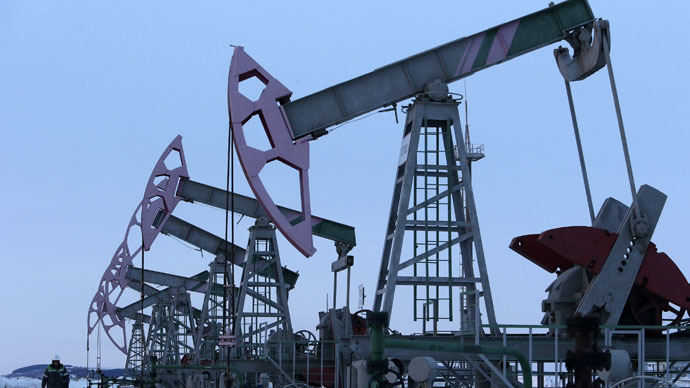Cheaper crude won’t spur economic growth – Moody’s

A fall in world oil prices over the next two years won’t support global economic growth, as economic and political tension in the Eurozone, China, Russia and Japan constrain activity, Moody’s international rating agency said in a report.
"Lower oil prices should, in principle, give a significant boost to global growth,"said Marie Diron, a Moody's Senior Vice President and author of thereport. "However, a range of factors will offset the windfall income gains from cheaper energy."
READ MORE: Low oil prices create ‘window of opportunity’ for China and India - World Bank
While in theory lower oil bills should spur economic growth in Europe, however a number of economic issues, like high unemployment and deflation are outweighing most of the benefits of cheaper crude.The agency predicts that GDP growth of the eurozone will reach 1 percent this year despite low oil prices and 1.3 percent in 2016.
Lower energy prices will not stop the continued slowdown of the Chinese economy, as higher energy taxes and state control of prices in various sectors will weaken the effect of cheap oil. Moody's expects China's GDP growth will be below 7 percent in 2015 and 6.5 percent in 2016, Moody's says.
Brazil, which imports and exports roughly the same volumes of oil, is expected to have its slowest growth period since the early-1990s between 2014 and 2016 with the country’s GDP growth around zero in that period.
The recession in Russia will be deeper and longer than in 1998 and 2009 and last until 2017, according to the report. The country’s GDP will lose more than 8 percent in 2015-2016, while the drop in domestic demand will be sharper than the decline in GDP as a whole.
At the same time government spending in Saudi Arabia will support economic growth and compensate for the negative effects of lower oil prices.
Moody’s expects the price of North Sea Brent blend to be at $55 per barrel by the end of 2015 and up to $65 per barrel in 2016. The agency explains it is not expecting any changes in supply and demand in the near future.
However, despite a large number of downside risks, there won’t be any serious threat to the world economy, Moody’s analysts say.
Moody's said it will leave the forecast unchanged for the G20 countries.
"For the G20 economies, we expect GDP growth of just under 3 percent each year in 2015 and 2016," the report said.
The current oil prices will have a positive impact on the economies of India and the US, with its GDP expected to increase by 3.2 percent in 2015 and 2.8 percent in 2016.
"The US is one of the main beneficiaries of cheaper oil," Diron said. "The favorable economic environment in the US will encourage consumers and companies to spend part of the gains in real income that come from lower energy costs."












